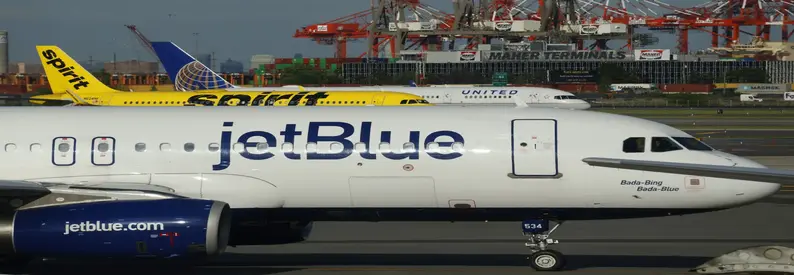JetBlue to Announce Partnership with Larger U.S. Carrier

JetBlue Airways is preparing to unveil a strategic partnership with another U.S. airline in the coming weeks, a move designed to bolster its network reach and loyalty offerings. The New York–based carrier, which was forced to abandon its planned merger with Spirit Airlines last year, has been in discussions with several potential partners. United Airlines is widely viewed as a frontrunner, offering JetBlue’s TrueBlue members access to a broader roster of destinations and seamless point earning and redemption.
Marty St. George, JetBlue’s president, emphasized on Tuesday’s earnings call that the partnership will enable customers to earn and redeem loyalty points on routes currently outside JetBlue’s network. “If you love JetBlue for leisure in the Northeast but twice a year need to travel to markets like Omaha or Boise, these are destinations where TrueBlue points aren’t available today,” St. George noted. “With our forthcoming partnership, those customers will gain that flexibility.”
JetBlue’s effort comes after its Northeast Alliance with American Airlines unraveled in 2023 when a federal court blocked the arrangement on antitrust grounds. American Airlines has since sued JetBlue over efforts to resurrect a modified version of their alliance, with American Vice Chair Steve Johnson telling employees that the two carriers could not agree on an operational or financial structure that preserved the partnership’s intended benefits.
In parallel, JetBlue attempted to expand through its proposed acquisition of Spirit Airlines, but the Department of Justice filed suit to block that deal in 2024, citing concerns over reduced competition and higher fares. Left without those growth avenues, JetBlue turned back to codeshare and reciprocal loyalty pacts to compete against legacy carriers with larger route maps.
Delta Air Lines and Alaska Airlines each declined to engage in partnership talks with JetBlue, with Delta confirming no pending alliance plans and Alaska focusing on its newly completed merger with Hawaiian Airlines. Southwest Airlines also chose not to comment. That leaves United as the most logical partner, given its vast domestic and international footprint and longstanding presence at JetBlue’s home hub, New York’s John F. Kennedy International Airport.
Industry analysts view the announcement as critical to JetBlue’s strategy of attracting higher-revenue business travelers and infrequent flyers who value comprehensive network access and loyalty rewards. Conor Cunningham, a transportation analyst at Melius Research, pointed out that JetBlue’s management will need to demonstrate a clear value proposition, irrespective of which carrier it partners with. “This opportunity has been debated for some time,” Cunningham said. “It now falls to JetBlue’s leadership to prove how the alliance will enhance market presence and customer loyalty.”
JetBlue’s TrueBlue program has grown rapidly, fueled by credit-card partnerships and consumer enthusiasm for no-change-fee ticketing. Yet international and smaller domestic markets remain out of reach without a partner to provide connecting services. A tie-up would allow JetBlue to offer its customers access to United’s extensive network in regions such as the Midwest, Rocky Mountains and parts of Europe and Asia, while United passengers could benefit from JetBlue’s award-winning inflight experience and service to underserved markets.
As JetBlue gears up for its quarterly partnership announcement, investors and travelers alike will be watching for details on revenue-sharing agreements, route integration plans and the expected timeline for reciprocal frequent-flyer benefits. If successful, the deal could reshape the competitive dynamics in U.S. aviation by combining JetBlue’s low-cost model with a partner whose scale complements its service strengths.
Related News : https://airguide.info/?s=JetBlue
Sources: AirGuide Business airguide.info, bing.com, cnbc.com
